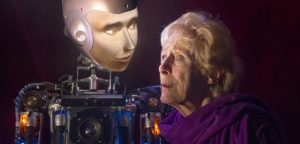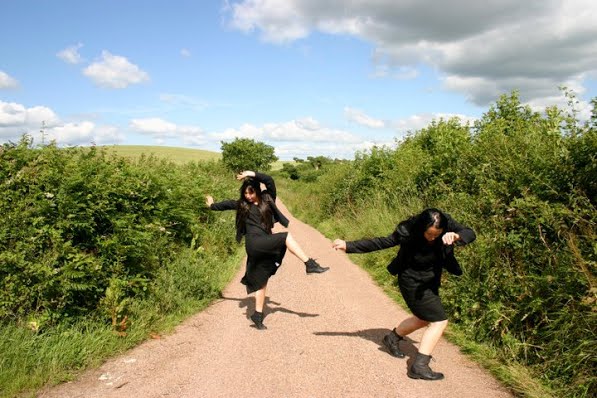Please join us for the next PEP Talk, the seminar series of the Performance.Experience.Presence research group at Plymouth University. All welcome.
Papers by Ruth Way and Eugenia Stamboliev
Wednesday 22 March 2017, 4.30 – 6.00pm
Roland Levinsky Building, room 308

“Clearing A Path:
Somatic transformations in the Opening of Hearts and Spaces, Dances of Self-Agency and Empathic Response”
Ruth Way
This working paper begins to explore spirituality as a journey, what Rachel Kraus (2009) refers to as the ability “to discover something larger than ordinary life. It is a dynamic on-going process which sometimes includes negotiating one’s understanding of and experiences of the sacred”. Kraus draws our attention to spirituality as connection with others, forming deeper human bonds and this is particularly helpful and relevant to my attempt to reveal the spiritual dimension and qualities pertaining to somatic dances of self-agency. I aim to explore how somatic movement practice can become charged with the potential for change and transformation. It will seek to realise connections between these transformative states with perceptions of spirituality and investigate what meaning this might hold for those dancing. I propose that aspects of spirituality in somatic movement practice become palpable when we consider them to be, as Amanda Williamson (2010) purports, as reflective of our material life and “historically, socially and culturally dynamic and not purely transcendental”.
Ruth Way is Associate Head of School, Performing Arts and Subject Head for Theatre and Performance at Plymouth University. Her specialist teaching and research areas are in screendance , performance training and somatic movement practice. Ruth has had an extensive career as a professional dancer and choreographer performing with Earthfall Dance and Lusty Juventus Physical Theatre and has presented her practice as research though performative papers, articles, screening and performances internationally. With visual artist Russell Frampton, she is co-director of Enclave Productions developing dance/art films, which have been screened in France, Russia, Estonia, Australia, Poland, USA and Brazil. Ruth was the choreographer for Heaven is a Place (2014) a dance film made in collaboration with Roberta Mock and Kayla Parker. Since 2004 Ruth has studied under Sondra Fraleigh in East West Somatic Movement Practice and is a certified and registered somatic movement educator through ISMETA. Her recent book chapter ‘Somatic Awakenings’ features in Fraleigh’s latest publication Moving Consciously (2015). Ruth acts regularly as a mentor for emerging dance artists and choreographers and is a member of the board of Directors for Plymouth Dance.

“Performing intimacy: On the dilemma of representing affection with non-human bodies”
Eugenia Stamboliev
The field of artificial emotions (AE) is focused predominantly on phenomenological and aesthetic qualities when simulating and representing emotions or affects (Fong et. al. 2003). This is driven by humanoid robotics (HR) being grounded in a materialistic, reductionist way of embodying AE as gesture based system (Ekman 1999, Picard 1997). One way of unpacking potential issues of a purely performative structure of emotion is to discuss the inclusion of humanoid robots as ‘emotional actors’ in contemporary plays. I will discuss why these collaborations are becoming more tempting, in artistic and scientific terms, and how the theatrical stage actually predicts a near future of including humanoids robots in our daily lives while pointing to the issues or gains awaiting us with our new “companions”. I am using the play Spillikin. A love story (2016) that was performed recently at the Royal Theatre in Plymouth to illustrate my points.
Eugenia Stamboliev is an associated researcher at Transtechnology Research at Plymouth University and a PhD fellow in the Marie-Curie initiated doctoral training network, CogNovo. Her current research explores the phenomenology and codification of intimacy within different fields, such as film, theatre and science. Her explicit focus lies on discussing how the visual, the affective and the imaginary are intertwined to standardise experience in favour of representation. Her educational background is in Media Studies (University of Arts, Berlin), Philosophy, Art & Critical Thought (European Graduate School, Saas-Fee) and in Law, Art History and German-Jewish Literature (Free University Berlin).
The PEP Talks organising team: Chris Green, Katheryn Owens & Beth Emily Richards
Twitter: @PlymUniPEP

